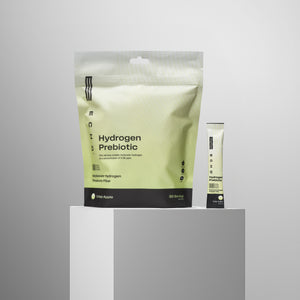Oxidative stress is a natural byproduct of metabolism, but when it becomes excessive, it can lead to cell and tissue damage. This article explores the concept of oxidative stress, its causes, symptoms, and ways to mitigate its effects on your health.
What is Oxidative Stress?
Oxidative stress occurs when there's an imbalance between free radicals (reactive oxygen species or ROS) and antioxidants in the body. Free radicals are highly reactive molecules that contain unpaired electrons, making them unstable. They can damage cellular components such as DNA, proteins, and lipids, contributing to various health problems.
Causes of Oxidative Stress:
Several factors can contribute to oxidative stress, including:
1. Poor Diet: Consuming a diet high in processed foods, refined sugars, and unhealthy fats can increase oxidative stress in the body.
2. Environmental Toxins: Exposure to environmental pollutants, cigarette smoke, pesticides, and other toxins can elevate oxidative stress levels.
3. Chronic Diseases: Conditions such as diabetes, obesity, cardiovascular diseases, and inflammatory disorders can promote oxidative stress.
4. Lifestyle Factors: Lack of exercise, chronic stress, insufficient sleep, and excessive alcohol consumption can exacerbate oxidative stress.
Signs and Symptoms of Oxidative Stress:
Identifying oxidative stress can be challenging since it often manifests through a variety of symptoms that overlap with other health conditions. Some common signs of oxidative stress include:
- Fatigue and low energy levels
- Persistent inflammation and joint pain
- Increased susceptibility to infections
- Premature aging signs such as wrinkles, fine lines, and age spots
- Cognitive decline and memory issues
- Poor wound healing and slower recovery from illnesses
Assessing Your Oxidative Stress Levels:
While it's difficult to directly measure oxidative stress levels in the body, certain biomarkers and diagnostic tests can provide insights into your overall antioxidant status and potential oxidative damage. These include blood tests measuring antioxidant enzyme levels, markers of lipid peroxidation, and total antioxidant capacity.
Mitigating Oxidative Stress:
Fortunately, several lifestyle changes and dietary strategies can help reduce oxidative stress and promote overall health:
1. Eat a Balanced Diet: Consume a variety of antioxidant-rich foods such as fruits, vegetables, nuts, seeds, whole grains, and fatty fish to neutralize free radicals and support cellular health. Hydrogen water is one of the most powerful antioxidants, and with zero calories, it is also one of the most efficient.
2. Stay Active: Regular physical activity helps combat oxidative stress by enhancing antioxidant defenses and improving mitochondrial function.
3. Manage Stress: Practice stress-reducing techniques like meditation, deep breathing, yoga, and mindfulness to minimize the harmful effects of chronic stress on your body.
4. Get Quality Sleep: Prioritize adequate sleep to allow your body to repair and regenerate, reducing oxidative stress and promoting overall well-being.
5. Limit Exposure to Toxins: Minimize exposure to environmental toxins, pollutants, and harmful chemicals to reduce oxidative damage to cells and tissues.
Conclusion:
Oxidative stress is a natural consequence of metabolic processes, but excessive levels can wreak havoc on your health. By adopting healthy lifestyle habits, nourishing your body with antioxidant-rich foods, and minimizing exposure to toxins, you can mitigate oxidative stress and support optimal health and longevity. Listen to your body, prioritize self-care, and take proactive steps to reduce oxidative stress for a vibrant and thriving life.
Do I Have Oxidative Stress?
February 03, 2021
By Alex Olsen
Continue Reading
Leave a comment
This site is protected by hCaptcha and the hCaptcha Privacy Policy and Terms of Service apply.





